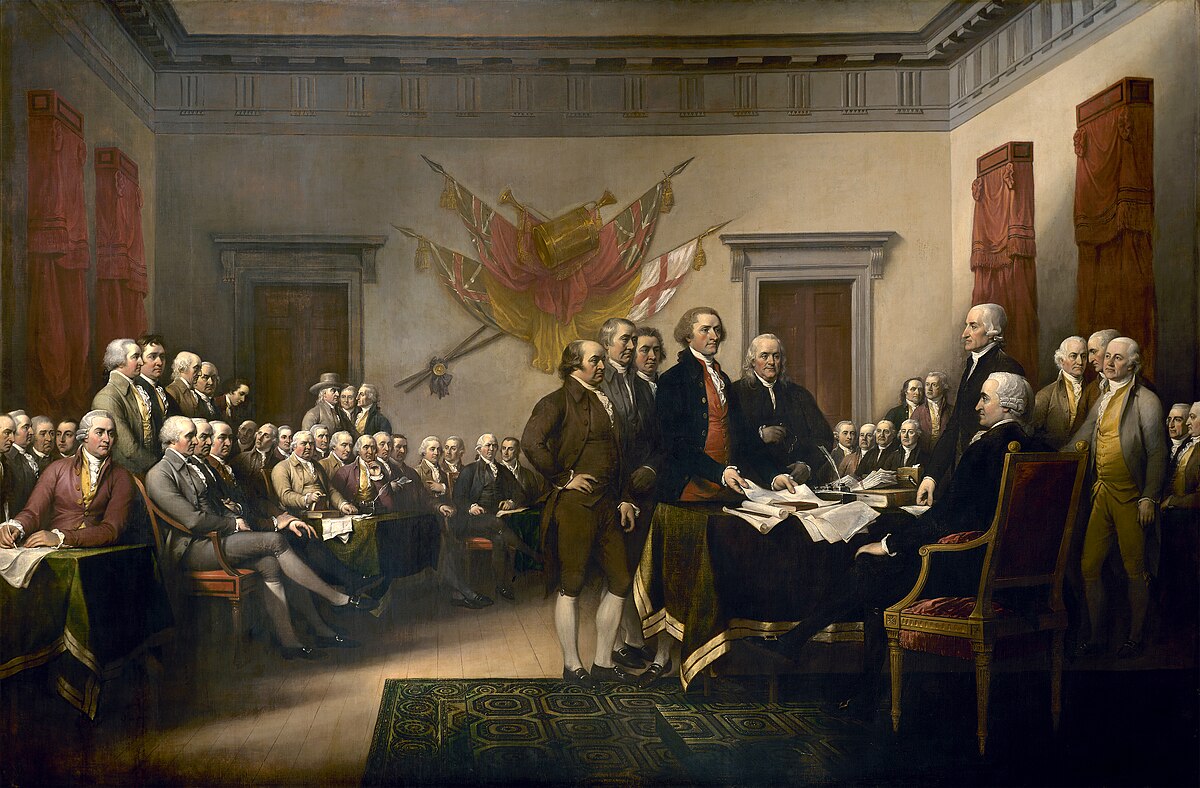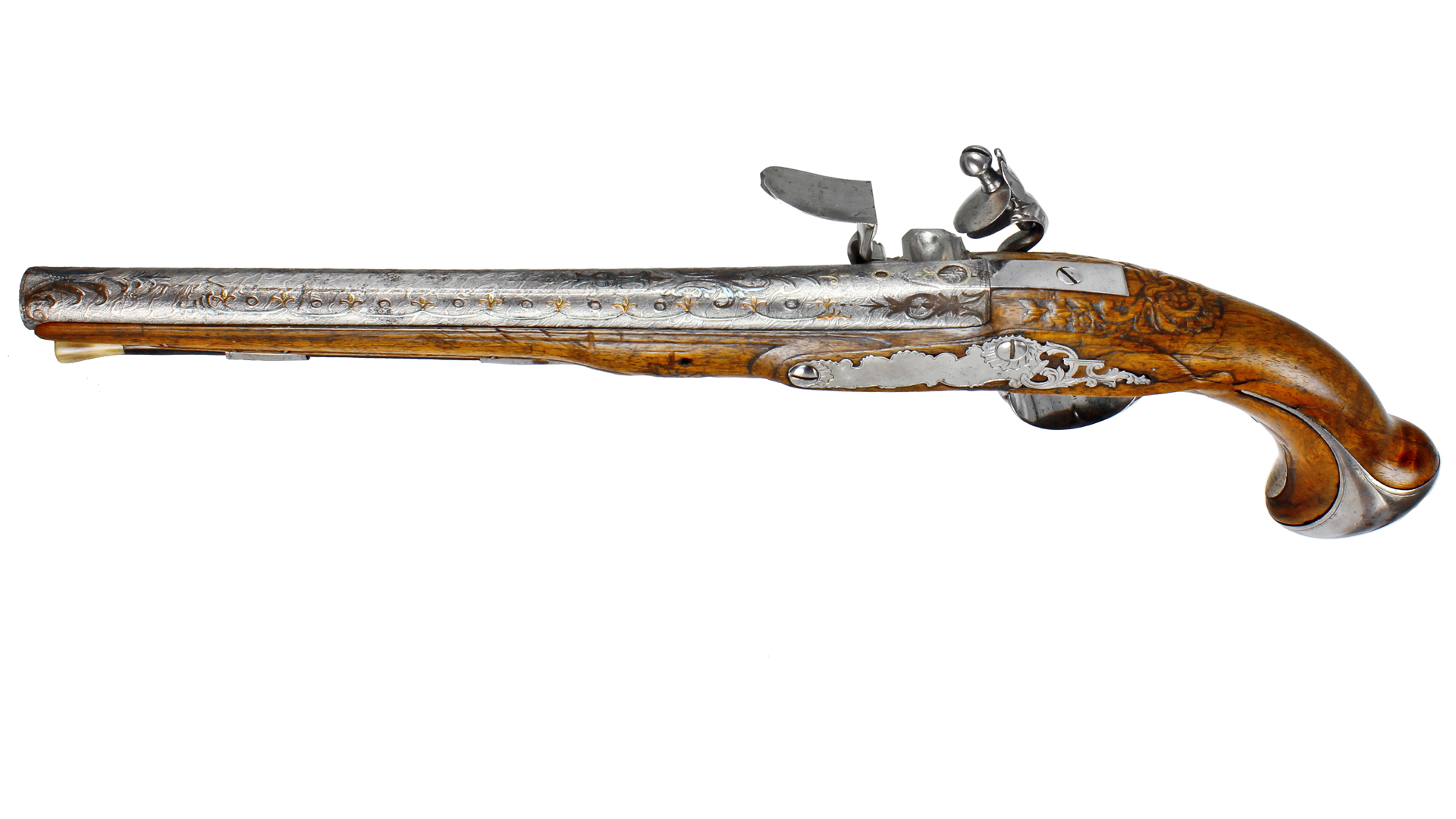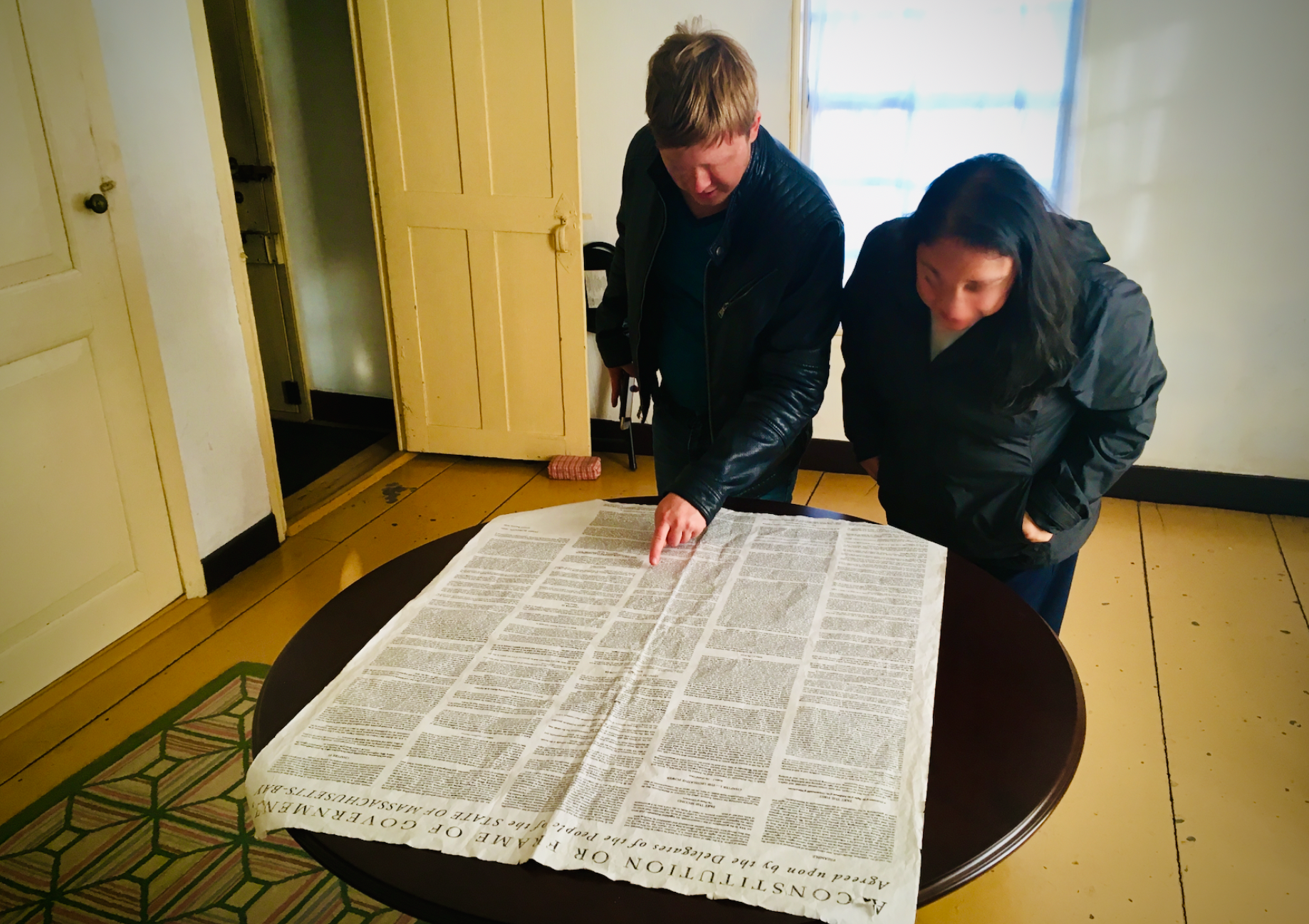See attached for a reference to these 15 individuals:

 en.m.wikipedia.org
en.m.wikipedia.org
These being:

Founding Fathers of the United States - Wikipedia
These being:

Look at the last will and testament for each man listed. There would be a section of tangible property to be disposed of. If there are fireamrs on the list, there's your proff. (It doesn't prove said man ever used said firearms.) Also, diary/journal entries of said founding father and those of his contemporaries, which may mention the possession or use of a firearm (on a hunting trip for example.) lastly, local store records that may show purchase or delivery of a fireamr to said founding father.How on earth would you prove this?
I find that an interesting question... in the era of when the Constitution was written, if you wanted to eat, you needed a firearm... let alone defense. It wasn't like they could run down to the A&P and pick up some steaks....
That would have been the opening of the French & Indian War, specifically, Penn's Creek Massacre, in 1754, or just as likely, Braddock's defeat and subsequent retreat of George Washington in 1755.Not necessarily. A lot of the game in settled areas had been hunted out, and a lot of the arable land was under cultivation. Market hunters did go out on the fringes and bring meat in for sale. Definitely, some people still did own guns and hunt. But you’d just as likely eat food that was raised or that came from the sea. One entry I remember from Pennsylvania Gazette from the 1750’s mentioned some unrest, and people from the outlying settlements fleeing back to Philly, with no guns or locking doors around for miles.
and does cite a 2019 journal article. One must consider that, at the time, PA was still largely populated by Quakers (pacifists), so it would be reasonable to expect significant numbers of them to be totally unarmed. (William Penn Jr, founder of PA colony, himself struggled with the idea of carrying a sword, a badge of his aristocratic station in England, after his conversion to Quakerism.people from the outlying settlements fleeing back to Philly, with no guns
That would have been the opening of the French & Indian War, specifically, Penn's Creek Massacre, in 1754, or just as likely, Braddock's defeat and subsequent retreat of George Washington in 1755.
To answer the earlier question of "how would you prove that?", the wikipedia entry on Penn's Creek Massacre states that "... Franklin himself helped to organize and train the first Pennsylvania regiments." This would indirectly indicate that Franklin was at least familiar with firearms and basic military drill-as would be expected for service in the militia.
I dislike citing wikipedia, and that particular claim is not cited in the entry, so take it with a gran of salt, however, the same entry further mentions your assertion of...
and does cite a 2019 journal article. One must consider that, at the time, PA was still largely populated by Quakers (pacifists), so it would reasonable to expect significant numbers of them to be totally unarmed. (William Penn Jr, founder of PA colony, himself struggled with the idea of carrying a sword, a badge of his aristocratic station in England, after his conversion to Quakerism.
All that is to say, I think we have proven that at least founding father owned or was at least familiar with firearms.
Oops. I was unclear. I know there are several ways to prove that someone owned firearms. How would you prove that they did not own firearms? Wills and journals might not mention something that really was present. I suppose if we look at the wills of every individual on the list, and they all mention a firearm, the question will be answered. That is, however, more work than I have time for at the moment.Look at the last will and testament for each man listed. There would be a section of tangible property to be disposed of. If there are fireamrs on the list, there's your proff. (It doesn't prove said man ever used said firearms.) Also, diary/journal entries of said founding father and those of his contemporaries, which may mention the possession or use of a firearm (on a hunting trip for example.) lastly, local store records that may show purchase or delivery of a fireamr to said founding father.
Proving a negative without a personal statement from an individual is famously difficult.How would you prove that they did not own firearms?


These are rich guys who would have had people for that.I would not be surprised if Franklin and the others that didn't own farms and lived solely in town did not.
Not all of them were planters on an estate and they weren't buckskin wearing frontiersmen.
Personal ownership of firearms (except by slaves) simply wasn't controversial in America, in1791. Our modern debate about guns would have left the Founders scratching their heads in bewilderment. Therefore, if that's all there was to it, an Amendment would not have been necessary.I brought this topic up simply because, with all the challenges to the Second Amendment in this day and age, if ALL of the Founding Fathers owned firearms, then it was probably the intent that all of the citizenry be allowed to, as well.
I brought this topic up simply because, with all the challenges to the Second Amendment in this day and age, if ALL of the Founding Fathers owned firearms, then it was probably the intent that all of the citizenry be allowed to, as well.
Or perhaps not. Maybe reserved for the aristocracy or elite, call it what you will.
The way in which you refer to it, The Seven Years' War, indicates you'e studied the war from the European perspective. I've never seen it taught as anything other than the French & Indian War in an American university or classroom. I have seen it taught as Le Guerre de Suavage (war of the savages) in the Canadian perspective. (But "suavage" doesn't carry the same negative connotation in French that "savage" does in English.I believe it was around 1754, but it’s been about fifteen years since I read that. I used to have a lot of interest in the Seven Years War, and spent some time in libraries looking up primary sources. I still have a copy of Crucible of War and a copy of Of Sorts for Provincials around somewhere.
I find that an interesting question... in the era of when the Constitution was written, if you wanted to eat, you needed a firearm... let alone defense. It wasn't like they could run down to the A&P and pick up some steaks....
How would you prove that they did not own firearms?
You do realize that when the Constitution was written, we had cities, towns, markets, newspapers, blacksmiths, government, etc. Not everyone lived in the rural country or was self sufficient.
The way in which you refer to it, The Seven Years' War, indicates you'e studied the war from the European perspective. I've never seen it taught as anything other than the French & Indian War in an American university or classroom. I have seen it taught as Le Guerre de Suavage (war of the savages) in the Canadian perspective. (But "suavage" doesn't carry the same negative connotation in French that "savage" does in English.
Perspectives change things. As someone mentioned, firearms were not controversial in the US at the founding, and probably were not controversial in Canada, either, although they have become so. I suspect they were controversial in Europe, even at the time of the The French & Indian War.
